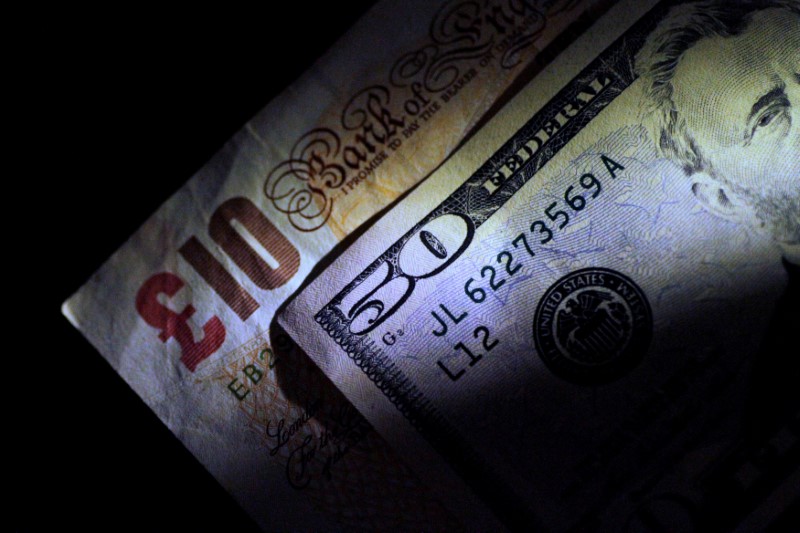Investing.com – The US dollar fell in early European trading on Thursday as weak economic data raised expectations of interest rate cuts by the Federal Reserve, while the pound rose higher as Britain went to the polls.
At 04:20 ET (08:20 GMT), the Dollar Index, which tracks the greenback against a basket of six other currencies, was trading 0.2% lower at 104,900, extending sharp overnight declines .
Economic weakness hits the dollar
The dollar fell slightly on Thursday, extending Wednesday’s weakness after the release of data showing softer-than-expected employment figures and weak non-manufacturing sector data.
This data has increased expectations that a cooling U.S. economy will convince Fed officials to approve rate cuts in the near future.
The tool showed that traders estimate a nearly 66% chance of a rate cut in September, up from 59% a day ago.
“We suspect that some of this reluctance to price in more easing is related to the increasing chances that Donald Trump will win the US presidency in November. The assumption here is that Trump’s protectionist and tax-cutting policies may delay Fed easing,” ING analysts said in a note.
Trading on Thursday is likely to be within a range as the US celebrates Independence Day, and much of the focus will be on Friday’s report for further guidance.
French political uncertainty
rose 0.1% to 1.0794, with the euro benefiting from dollar weakness, although the common currency could struggle to maintain its gains amid regional political uncertainty.
The country should not rush into the next interest rate cut, Slovenian central bank governor Bostjan Vasle said on Wednesday, as a host of risks could still derail disinflation in the euro zone.
“The message sent by European Central Bank officials [a ECB forum in] Sintra was one of patience. There is clearly no pressure to continue with successive rate cuts given slower disinflation, and it also appears that a wait-and-see approach is favored over verbal intervention when it comes to the recent bond market turmoil,” ING said.
The euro has fallen more than 1% since French President Emmanuel Macron called for surprise early elections on June 9, and it is difficult to see any substantial gains given the uncertainty ahead of Sunday’s runoff elections.
“We remain somewhat doubtful that markets will be comfortable with EUR/USD trading around 1.09 given continued uncertainty over French politics and the increasing risk of a Trump re-election,” ING added .
rose 0.2% to 1.2759, with Britain going to the polls for a general election on Thursday.
Opposition Labor is widely expected to end the Conservative Party’s fourteen years in power, with the latest polls giving Labor a lead of around 20 points.
“We have struggled to identify the major risks to the pound heading into today’s vote. Not only because opinion polls strongly indicate that Labor needs to secure a majority, but also because the change in government seems unlikely to affect the policy path for the Bank of England,” ING said.
Britain’s tight finances mean that any new government will have little room to dramatically increase public spending.
Yen on intervention watch
In Asia, it traded 0.3% lower at 161.21 after nearly breaching the 162 level on Wednesday.
The pair was still trading well above 160, the level that last prompted government intervention in May. With Japanese officials reiterating their pledge to defend the yen, traders remained wary of any potential intervention in the coming days.
Traders speculated that the government would take advantage of low trading volumes during the US Fourth of July market holiday to intervene. The government’s intervention in May had taken place during a Japanese market holiday.
largely unchanged at 7.2701 and remains close to a seven-month high amid declining confidence in the Chinese economy.


